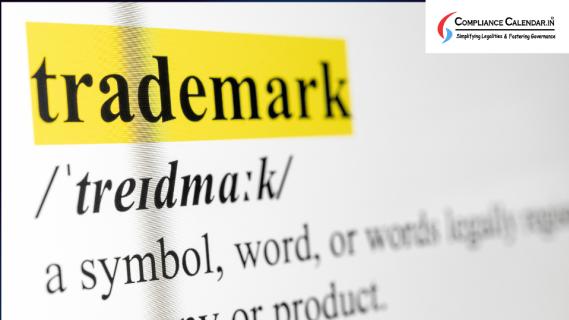Trademarks in Digital Marketing
In the ever-sprouting world of digital marketing, a
trademark serves as a vital asset for businesses. It not only distinguishes a
brand from its competitors but also builds trust and credibility among
consumers. As online presence becomes more critical, understanding the role of
trademark registration in digital marketing is essential for brand protection and growth.
What is a Trademark?
A trademark is a recognizable sign, design, or expression
that identifies and distinguishes products or services of a particular source
from those of others. It can be a word, logo, symbol, sound, or even a
combination of these elements. The primary purpose of a trademark is to prevent
confusion in the marketplace by confirming that consumers can accurately
identify the source of a product or service.
In digital marketing, trademarks play a vital role in brand
identity. They help businesses maintain consistency across various platforms
and establish a strong presence in the minds of consumers. Whether it’s a
company logo displayed on a website, a tagline used in social media campaigns,
or a brand name mentioned in email marketing, trademarks are omnipresent in the
digital site.
The Importance of Trademarks in Digital Marketing
- Brand
Protection and Identity:
A trademark is a powerful tool for protecting a brand's identity. In the digital realm, where brands often have a global reach, it’s key to safeguard your brand against unauthorized use. By registering a trademark, businesses can prevent others from using a similar name, logo, or slogan, which could lead to brand dilution or consumer confusion.
Consistent use of trademarks across digital channels
reinforces brand identity. It helps customers recognize your brand, fostering
loyalty and trust. When consumers see your trademark, they associate it with
your business’s reputation and quality, making it easier for you to stand out
in a crowded market.
- Legal
Protection:
Trademarks provide legal protection for your brand in both physical and digital marketplaces. If another entity attempts to use a mark that’s identical or confusingly similar to yours, you have the legal right to stop them. This protection is especially important in digital marketing, where copying and intellectual property infringement are more prevalent.
For example, if a competitor uses a similar logo or brand
name in online advertising or on social media, it could mislead consumers into
thinking they’re dealing with your business. A registered trademark allows you
to take legal action to prevent such misuse and protect your brand’s
reputation.
- SEO
and Online Visibility:
Trademarks also play a significant role in search engine optimization (SEO) and online visibility. Search engines often give preference to websites that use trademarked terms in their domain names or content, as they are considered more authoritative and trustworthy. This can lead to higher rankings in search engine results pages (SERPs), driving more traffic to your website.
Moreover, having a trademark can prevent others from using
your brand name in their online marketing efforts, such as in pay-per-click
(PPC) advertising. This ensures that your brand remains the focal point of
search results, enhancing your visibility and minimizing the risk of losing
potential customers to competitors.
- Social
Media Branding:
Social media platforms are integral to digital marketing strategies. They are also where brand identity can be most vulnerable. Unauthorized use of your brand’s name, logo, or other trademarked elements on social media can harm your brand’s reputation and lead to customer confusion.
By registering your trademarks, you can take action against
accounts that misuse your brand’s identity on platforms like Facebook,
Instagram, Twitter, and LinkedIn. This not only protects your brand but also
ensures that your official accounts are the ones gaining followers and
engagement, preserving the integrity of your online presence.
- Preventing
Cybersquatting:
Cybersquatting occurs when someone registers a domain name that is similar to a trademarked brand, often with the intent to sell it back to the trademark owner at an inflated price. This can be a significant issue in digital marketing, where your domain name is often the first point of contact for potential customers.
Having a registered trademark can help prevent
cybersquatting. If someone tries to register a domain name that includes your
trademark, you have the legal grounds to challenge it and reclaim the domain.
This ensures that your brand’s online presence remains under your control.
- Licensing
and Monetization Opportunities:
Trademarks also open up opportunities for licensing and monetization in digital marketing. If your brand becomes well-known and respected, other companies might want to license your trademark for use in their products or services. This can create additional revenue streams and further strengthen your brand’s market presence.
In the digital space, licensing can extend to various forms
of content, from branded merchandise to co-branded marketing campaigns. A
strong trademark can be a valuable asset in negotiating such deals, ensuring
that your brand is represented in a way that aligns with your values and
business goals.
Challenges and Considerations in Digital Marketing
While trademarks offer significant benefits, they also come
with challenges in the digital marketing context. The global nature of the
internet means that your trademark could be at risk of infringement in multiple
jurisdictions. It’s essential to consider international trademark
registration if you operate or plan to expand globally.
Moreover, the fast-paced nature of digital marketing
requires vigilance in monitoring your trademark’s use online. Regularly search
for unauthorized uses of your trademark and be prepared to take swift legal
action if necessary. Tools like Google Alerts and specialized trademark
monitoring services can help you stay on top of potential infringements.
Conclusion
In the competitive world of digital marketing, trademarks
are indispensable for protecting and enhancing your brand. They provide legal
protection, bolster your SEO efforts, and ensure consistency across all digital
channels. As your business grows and evolves, having a registered trademark
becomes increasingly important to safeguard your brand’s identity and
reputation. By understanding the role of trademarks in digital marketing, you
can build a strong foundation for long-term success and avoid common pitfalls
that could undermine your brand’s integrity.














